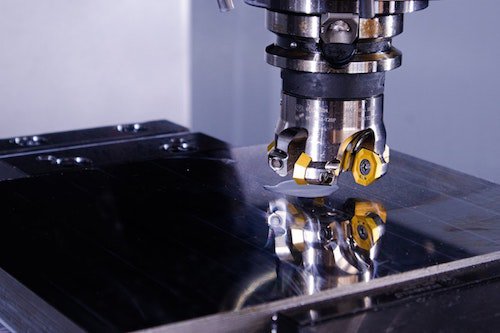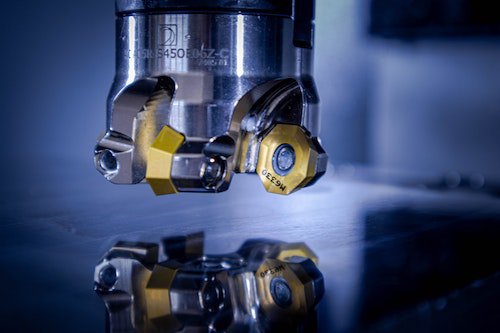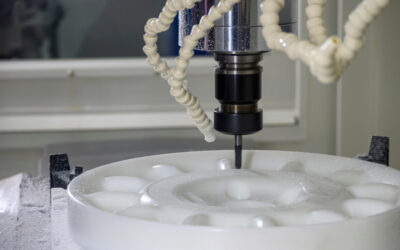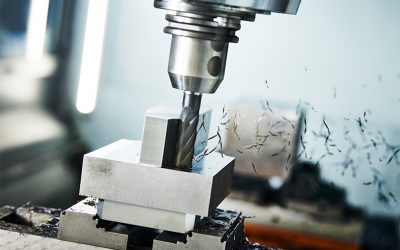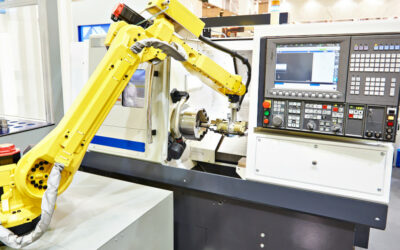As you may have realized, CNC machining is an exceptionally versatile way to manufacture your steel part. However, you may be wondering what type of steel is the best option for your project and how you can tell if you are choosing the correct one.
This article will explain the properties you must consider for your steel machined part and our top 10 types of steel for CNC machining to give you some excellent options for your next project. This way, you can be sure to get the best results.
The Benefits of Steel and its Challenges for CNC Machining
While the CNC machining process can produce high-quality and precise parts from many materials, those materials with poor machinability often produce unsatisfactory results. When it comes to the wide variety of steel alloys available on the market, you’ll find a large number of steel alloys with good machinability. In fact, the AISI machinability rating is generally determined relative to B1112 alloy steel.
As we’ve explained previously, to determine a material’s machinability, you should, at a minimum, consider the material’s hardness, allowable heat inputs, and the desired surface finish to assess if it is a suitable material for CNC machining.
Hardness is a key indicator of machinability, and if the material is too hard or too soft, it can cause delays, extra labor time, or even require special equipment. Many of the steels you would consider for your projects are not free machining steels. So they will typically exhibit a higher hardness than free machining steel and feature a machinability rating below 100%.
While hardness generally directly correlates with machinability, the impacts of heat input can be more challenging to determine. Some materials behave differently at high temperatures, and some can even melt. The high heat inputs from machining can affect the microstructure of some materials more than others. For instance, Grade 17-4 stainless steel may need to be solution heat treated after machining to maintain certain desirable properties.
Finally, while higher hardnesses and different sensitivities to heat effects impact the machinability of steel alloys, they can exhibit excellent surface finishes. While this does depend on the grade, materials that exhibit a suitable machinability index generally also exhibit a good surface finish, which can often be further enhanced by a polishing treatment, either chemical or physical.
The Top 10 Steels for CNC Machining Compared
There are many steel alloys available to consider for your project, but to help narrow down your search, we have compiled the top 10 steels for CNC machining. While this list is not all-encompassing, the common steels listed in the table below all exhibit suitable machinability along with a variety of other desirable properties.
| Steel Alloy | Type | Description | Advantages | Disadvantages | Applications |
|---|---|---|---|---|---|
| SS 303 | Free Machining Stainless Steel | One of the most readily available and highly machinable of all austenitic grades of stainless steel. | Excellent machinability, good corrosion resistance, moderate cost. | Cannot be hardened by heat treatment. Not suitable for marine applications. | Electronic hardware, nuts and bolts, screws, aircraft fittings, bushings. |
| SS 416 | Free Machining Stainless Steel | Offers superior machinability to any other stainless steel. | Outstanding machinability, moderate corrosion resistance, good strength. | Not suitable for chlorine or marine environments. Poor weldability and limited availability. | Valves, pump shafts, gears, nuts, bolts. |
| SS 304 | Stainless Steel | One of the most common stainless steels alloys available with good weldability. | Good machinability, weldability, and cost. Excellent corrosion resistance. | Susceptible to stress corrosion cracking in some applications above 60°C. Some other stainless steel alloys offer better resistance to pitting and crevice corrosion. | Food handling, utensils, automotive parts, architectural applications, heat exchangers, screws. |
| SS Grade 17-4 | PH Stainless Steel | It is a grade of martensitic precipitation hardened stainless steel, containing up to 30% chromium. | Very high toughness, strength, and corrosion resistance. | Requires efficient and careful heat treatment. | Nuclear reactors, aircraft turbines, oil and gas applications. |
| 1045 | Medium Carbon Steel | Versatile medium carbon steel alloy with relatively good strength and hardness characteristics, making it good for wear-resistant applications. | Good strength and hardness. Good weldability and machinability. | May require post-heat treatment to relieve stress. | Axles, bolts, light gears, forged connecting rods. |
| 1018 | Mild Carbon Steel | The best steel for carburized parts, with excellent weldability. | Excellent weldability and machinability. | Offers moderate mechanical properties such as strength and ductility. | Tie rods, anchor pins, spindles, machinery parts. |
| 1144 | Free Machining Medium Carbon Steel | A free-machining resulfurized carbon steel with excellent wear resistance. | High strength and hardness, good resistance to deformation and wear. | Poor overall weldability. | Gears, pistons, screws, nuts, rods. |
| 4140 | Low Alloy Steel | Alloy steel with low chromium, molybdenum, and manganese. | Good machinability in the annealed condition. High fatigue, wear, and impact resistance. | May require post-heat treatment. | Couplings, nuts, bolts, automotive and machinery parts, spindles. |
| 8620 | Low Alloy Steel | Provides good strength and ductility. Responds well to hardening by nitriding and provides excellent wear resistance. | Good strength and wear resistance. | Poor response to flame or induction hardening. | Piston pins, fasteners, camshafts, gears, and chains. |
| 8630 | Low Alloy Steel | A high-strength alloy with good hardenability. | Good response to heat treatment. | Heat treatment may be required before and after machining or welding. | Gears, crankshafts, forged connectors, and block valves. |
Is Steel the Right Choice for Your Project?
All in all, steel is a highly versatile material, which is why it is one of the most common metals in our daily lives. There are numerous options available that offer specific material properties, all depending on what you need from your final product.
For instance, if you are in the marine applications industry, you may want to avoid the SS 303, even though it has excellent machinability. Instead, you may want to consider the SS 304, which has excellent corrosion resistance.
Likewise, a good option for a relatively inexpensive but very hard carbon steel can be AISI 4140, but stronger options include AISI 1144 and AISI 8630, along with the various stainless steel options.
Our experts can provide CNC machining services for a wide variety of steel alloys. If you have questions, reach out to us or check out our CNC machining services page for more information!

